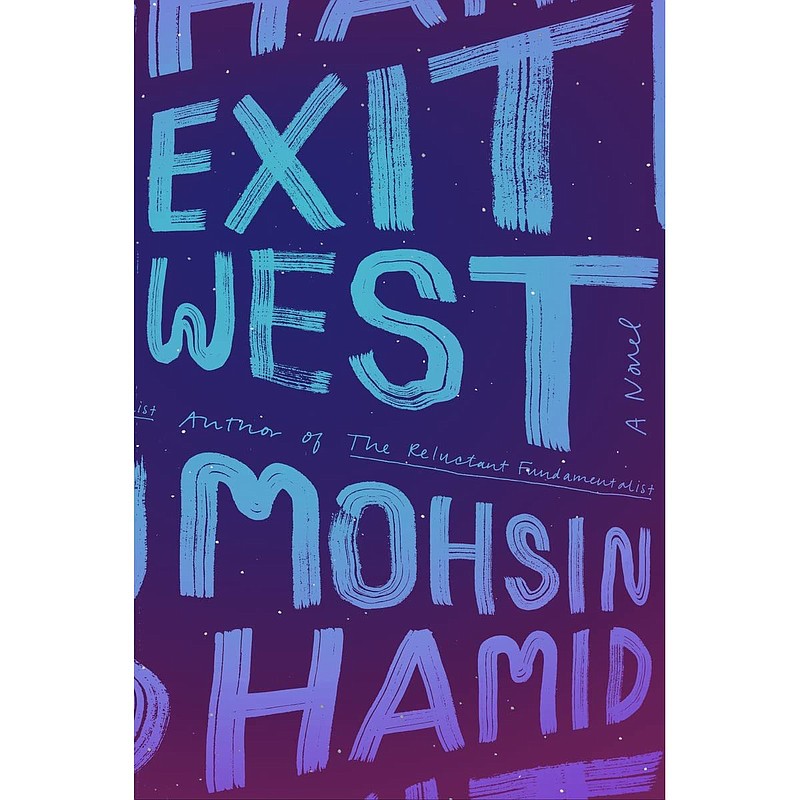In Mohsin Hamid's moving novel, "Exit West," a series of mysterious doors appear around the world, immediate portals into distant lands. The novel follows a pair of lovers who first attempt to navigate their own city, racked by violence, before ultimately deciding to test their luck through the doors.
When the novel debuted in 2017, it was published coincidentally in the midst of controversy surrounding President Donald Trump's travel ban affecting majority-Muslim countries. The book went on to critical acclaim -- The New Yorker proclaimed it "a novel about immigrants that feels instantly canonical" -- and the Booker Prize shortlist. The United States went on to witness further immigration upheaval, not to mention racial strife and a pandemic.
We spoke with Hamid to get his take on how his novel will be read now. We reached him by phone in New York, where he'd just flown from Pakistan with his wife and two children.
Q: How do you think "Exit West" will be read post-COVID-19?
A: It's an illusion that we live in a world that's stable. All it takes is some crisis -- whether it's a health crisis involving a loved one or pandemic or war or losing a job -- to suddenly realize that this stable fabric doesn't exist. There's a radical potential to that, because it alerts us to our own vulnerability and the possibility of making us able to empathize more with others. But it's sort of up to us what we choose to make of this change, and I do feel the world is charged with the potential for change.
Q: Migrant stories -- such as this novel -- are very much about the potential for change.
A: The migrant experience, as I see it, is a human universal. Actually, just getting older, just growing up as a child and becoming an adult and then approaching one's own death is a migration. When we see people who are forced to migrate in space, it's a bit jarring for us, because we're reminded not just that we could be in the exact same position should something terrible befall where I happen to live. But actually we have also felt this: I did change schools when I was 10. Or I did deal with the loss of a parent when I was 18. Or I did lose a job at 36. The jarring elements of our own migrations are made more evident to us by seeing other people who migrate.
Alongside that, there's an enormous degree of suffering that happens in human life. We say, Oh, well, I grew up and I moved away from the town where I lived, as though that's nothing, but in fact, for the young person who moved away, that can be incredibly painful. We say we take it for granted that parents and loved ones pass away, but that is cosmic tragedy on the maximum scale that human beings can comprehend. I think the notion that we are all migrants, the notion that migration does involve suffering and therefore something that we all have to deal with, both of those notions relate to a kind of counter-tendency, which is to pretend otherwise: to pretend that we don't suffer. And that counter tendency -- whether it's kind of a politicized nostalgia that says we can go back to the way that things used to be or it's a personal closing off and denying your own pain -- I do think that both of those things require a kind of response. They require a response on the human level, so that we aren't made monstrous by our own suffering, we aren't made into unempathetic, closed off, wounded, unexamined human beings. But also, as a group, as people who form societies, there's a component that we have to act. We have to muster a certain degree of optimism in the face of the story. Because if we aren't able to muster that optimism, then we condemn ourselves to the nostalgia and the monstrous closing off of human feeling. And I think we see signs of that all over the world right now.
Q: How do you maintain optimism? Your book is hopeful, even as it portrays characters fleeing tragedy.
A: Optimism has been like a marriage. It's not just something that happens; it's something you have to commit yourself to making work. You can't just say, I don't feel optimistic, or wait for it to come. Even in the face of real tragedy or real difficulty, we have to find a way to choose that. It's tempting to allow ourselves to not be optimistic, to say, oh, things are looking really bad and they're going to get worse. That isn't a passive position. In choosing to be "realistic" in this way, we are facilitating a world that looks like our nightmare. There is an obligation to find reasons for optimism -- or to become and build the reasons for optimism.

